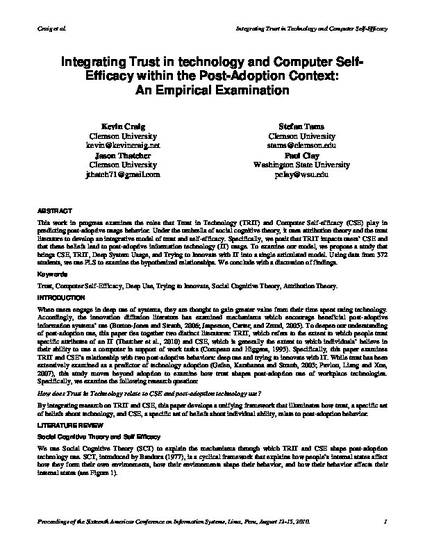
Article
Integrating Trust in technology and Computer Self- Efficacy within the Post-Adoption Context: An Empirical Examination
AMCIS 2010 Proceedings
Publication Date
8-1-2010
Abstract
This work in progress examines the roles that Trust in Technology (TRIT) and Computer Self-efficacy (CSE) play in predicting post-adoptive usage behavior. Under the umbrella of social cognitive theory, it uses attribution theory and the trust literature to develop an integrative model of trust and self-efficacy. Specifically, we posit that TRIT impacts users’ CSE and that these beliefs lead to post-adoptive information technology (IT) usage. To examine our model, we propose a study that brings CSE, TRIT, Deep System Usage, and Trying to Innovate with IT into a single articulated model. Using data from 372 students, we use PLS to examine the hypothesized relationships. We conclude with a discussion of findings.
Citation Information
Kevin Craig, Stefan Tams, Paul Clay and Jason Thatcher. "Integrating Trust in technology and Computer Self- Efficacy within the Post-Adoption Context: An Empirical Examination" (2010) Available at: http://works.bepress.com/jason_thatcher/4/
